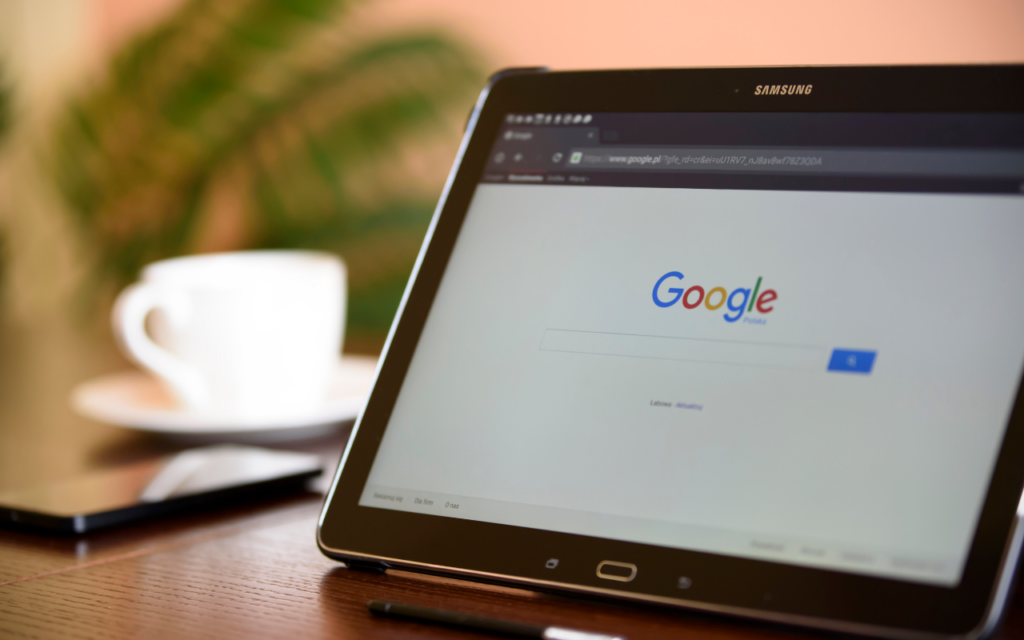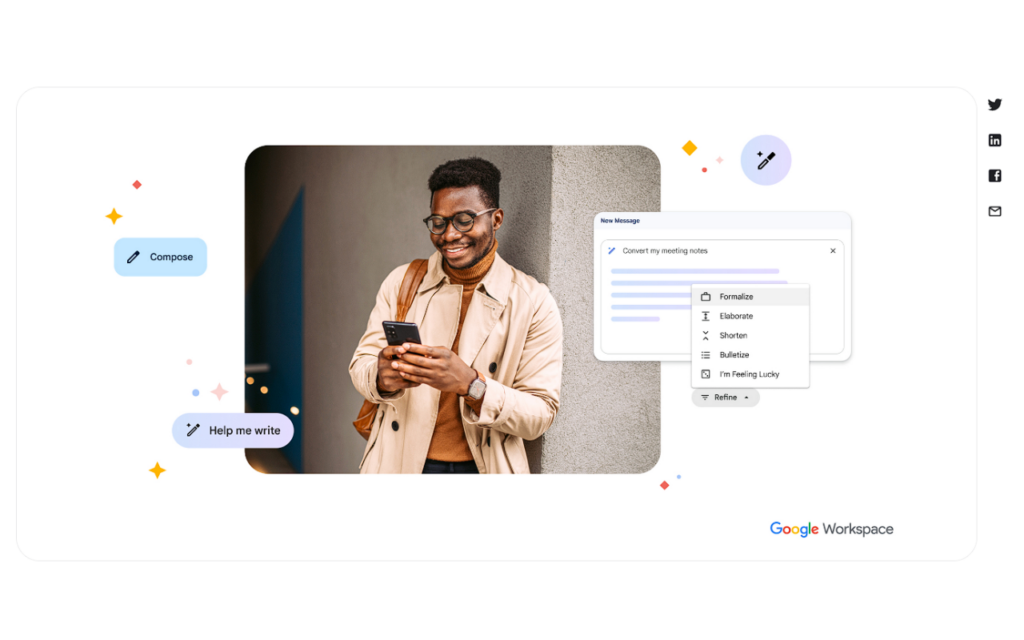© 2000-2023 - Enkey Magazine - All rights reserved
ENKEY SNC - VAT ID IT03202450924 / REA Code CA253701 - Phone. 078162719
A new era for Google Workspace: that of artificial intelligence. Google AI for Workspace is a much-needed and long-awaited addition to one of the most widely used productivity suites. Now that AI is rewriting the rules of digital product usage, Big G can only keep up with the times.
For over 25 years, Google has been known for the ease of the tools we use every day. And we’re not just talking about the world’s most used search engine. Gmail is considered one of the most popular email services ever, and Maps is the most widely used satellite navigator. The implementation of artificial intelligence for all these tools can only be a natural evolution for Google. For now, we’re still in a testing phase, but the results could come as early as 2023.
Google AI to improve Workspace
Previously known as G Suite, Google Workspace is a cloud-based suite of productivity applications. The tools included in the package cover every work need and are based on the concept of sharing and communication. The main applications are Gmail, Google Drive, Google Docs, Google Sheets, Google Slides, Google Chat, and, of course, Google Meet. In addition to the well-known names, Big G also offers other collateral and useful services such as Google Keep, Google Calendar, Sites, Forms, and much more.

The introduction of Google AI in Workspace makes this suite even more useful, user-friendly, and shareable. Thanks to generative artificial intelligence, users can more easily create their projects and improve their knowledge. Currently, only selected consumers and businesses are fortunate enough to benefit from this breakthrough, chosen for early access. We do not have a definite release date for the public, but Google has reported that some of the features will enter Workspace by the end of the year. It seems that these features are limited and will only concern Google Sheets, Presentations, and Meet. The doubt also remains on the price list: will these services come automatically with Workspace or will they have an extra cost? We can only wait and, in the meantime, discover some spoilers.
AI from Gmail to Docs
For now, official news gives a fairly clear picture of Google’s intention to introduce AI into its suite. However, if we compare it to other realities, such as Microsoft Copilot, the AI of Word and Teams, these features may seem a bit scant. More than a real launch, it seems like a starting point, and we’ll soon see why.
It has been revealed that Google AI will take hold starting from the AI-based writing functions in Docs and Gmail. The idea is to help people start their text, regardless of its purpose. By typing in the topic they want to write about, of course, in natural language, Google AI will provide a first draft that can then be edited or refined, perhaps always with some suggestions. The same function will also be available for emails, where Google AI will be a valuable aid in changing writing style, from formal to professional. In addition, AI can transform notes taken during a meeting into a real email.

Regarding the other tools in the Workspace suite, the integrations are “mandatory” ones. These include image, video, and audio generation in Presentations, formula generation and categorization in Sheets, creating new backgrounds, and note-taking in Meet. In short, these are basic functionalities, as Google admits. Perhaps the great absence is the cross-functionality between the suite applications.
Google AI and the “problem” of security
One reason why the functionalities of this Google AI may seem limited is probably security. In the official announcement, Big G hints at this: “Creating features with artificial intelligence requires great care, thoughtful experimentation, and many iterations guided by user feedback.” It seems that Google wants to be very cautious in making changes to its suite. And indeed, the company describes Workspace as the world’s most popular and secure communication and collaboration tool package.

That is why Google IA has been launched to trusted testers in the United States for now. After collecting all the feedback in American English, Google can open up new doors: small businesses, schools, and consumers in all countries. The idea is to remain in compliance with Google’s AI principles, including user control, where the user can accept, reject, and modify AI suggestions.
This post is also available in:
 Italiano
Italiano

